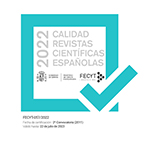The Effect of Covid-19 on the Use of Medicinal and Aromatic Plants: The Case of Turkey
Abstract
Covid-19, one of the coronaviruses has emerged in Wuhan, China as a result of zoonotic infection towards the end of December 2019. According to WHO data, Covid-19 has been present among approximately 221 million people in 222 countries, causing death for 4.5 million. Furthermore, these figures are increasing every day. In Turkey, approximately 6.5 million people have been infected thus far, and 58,651 of them lost their lives. People have preferred medicinal and aromatic plants to protect/treat themselves from Covid-19. The following questions were investigated in this study: Does Covid-19 affect the use of medicinal and aromatic plants? If it does, what are the changes? What types of herbs are used and in which ways they are used? Who advises people to use these herbs? According to the results, 113 taxa belonging to 61 families and 105 genera were used by the participants at the genus, species and subspecies level. Herbs that were widely used are Thymus sp., Tilia sp., Salvia officinalis L., Zingiber officinale Roscoe, Mentha piperita L., Curcuma longa L., Rosa canina L., Camellia sinensis (L.) Kuntze, Lavandula officinalis Chais, Matricaria sp., respectively. There was a positive and moderate-level relationship between the use of medicinal and aromatic plants before and after COVID-19, and another positive and moderate-level relationship between the frequencies of using medicinal and aromatic plants before and after the pandemic. The relationships were significant for both questionnaire items. Moreover, there was a significant difference between the frequency of use regarding medicinal and aromatic plants before and after Covid-19.
Downloads
Article download
License
Mediterranean Botany is an open access journal to promote global exchange knowledge. It facilitates unrestricted access to its contents from the moment of publication in its electronic edition. The originals published are property of the Universidad Complutense and it is mandatory to cite such source in case of total or partial reproduction. All contents are distributed under a Creative Commons License 4.0 (CC BY 4.0). This circumstance must be expressly stated in this way when necessary. You can check the informative version and legal text of the license.














